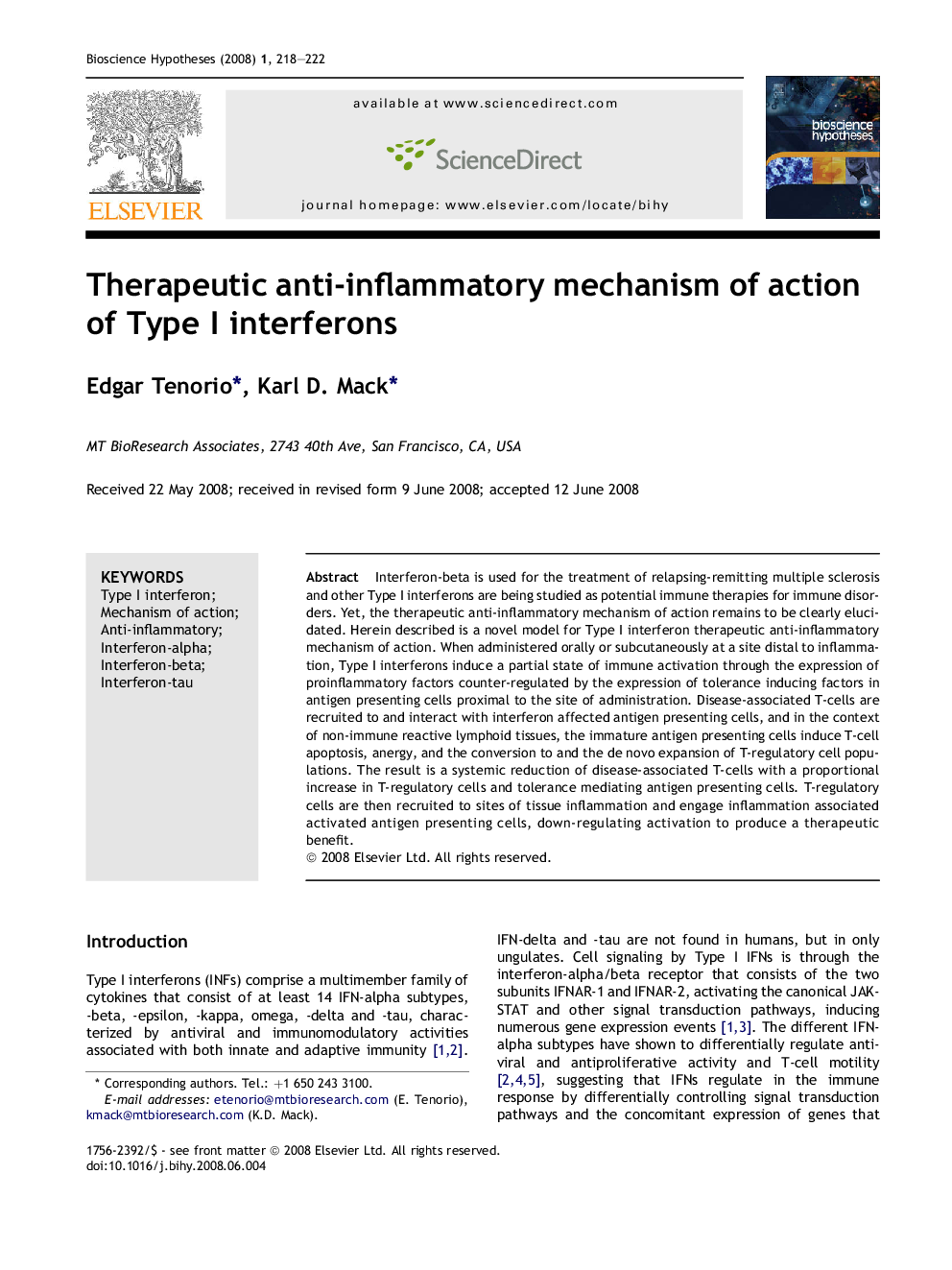| کد مقاله | کد نشریه | سال انتشار | مقاله انگلیسی | نسخه تمام متن |
|---|---|---|---|---|
| 2034950 | 1072111 | 2008 | 5 صفحه PDF | دانلود رایگان |

Interferon-beta is used for the treatment of relapsing-remitting multiple sclerosis and other Type I interferons are being studied as potential immune therapies for immune disorders. Yet, the therapeutic anti-inflammatory mechanism of action remains to be clearly elucidated. Herein described is a novel model for Type I interferon therapeutic anti-inflammatory mechanism of action. When administered orally or subcutaneously at a site distal to inflammation, Type I interferons induce a partial state of immune activation through the expression of proinflammatory factors counter-regulated by the expression of tolerance inducing factors in antigen presenting cells proximal to the site of administration. Disease-associated T-cells are recruited to and interact with interferon affected antigen presenting cells, and in the context of non-immune reactive lymphoid tissues, the immature antigen presenting cells induce T-cell apoptosis, anergy, and the conversion to and the de novo expansion of T-regulatory cell populations. The result is a systemic reduction of disease-associated T-cells with a proportional increase in T-regulatory cells and tolerance mediating antigen presenting cells. T-regulatory cells are then recruited to sites of tissue inflammation and engage inflammation associated activated antigen presenting cells, down-regulating activation to produce a therapeutic benefit.
Journal: Bioscience Hypotheses - Volume 1, Issue 4, 2008, Pages 218–222